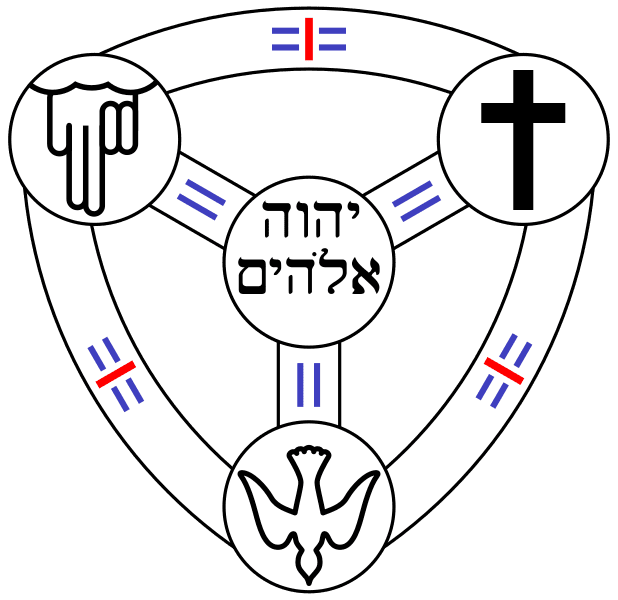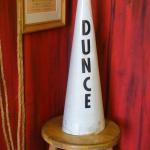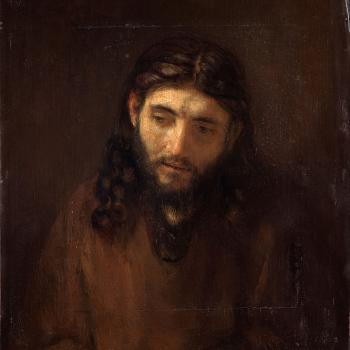
I was writing back and forth with a Protestant pastor. He was saying how, if he spoke on the Trinity in a Catholic environment, that the Catholics in attendance would be thinking that Protestants “got” the doctrine of the Trinity from Catholics and not from Scripture alone and that Catholics believe in it solely because the Church teaches it, and not [also] because the Bible teaches it. This was my reply:
* * * * *
That’s not how most Catholics I know would think about it at all. We would rejoice in the truths you taught about, knowing that we hold them in common. We would be glad to learn more about a highly important subject. It wouldn’t matter a hill of beans that you were a Protestant, anymore than it matters that William Lane Craig is a Protestant philosopher when he defends the Resurrection or gives his brilliant version of the Cosmological Argument.
I love that stuff, and so do most sensible Catholics. We quickly forget that the source may happen to be a Protestant and rejoice in the truth presented. Only a polemically motivated, over-zealous Catholic would think the way you have characterized. Now, granted, if there were some big debate about the topic, some of that might come out, but even then, I think you have caricatured our position.
I’m an apologist, and I have written about this very thing, and I would never present it in such terms. It’s far more complex than that. But in a nutshell, I would say: yes, the Trinity can be explicitly proven from many biblical passages. I do this myself. I presuppose that it is clear and undeniable from Scripture Alone:
Holy Trinity: Hundreds of Biblical Proofs (RSV edition) [1982; rev. 2012]
Jesus is God: Hundreds of Biblical Proofs (RSV edition) [1982; rev. 2012]
The Sufficiency & Perspicuity of Scripture & the Trinity [6-16-03]
Seidensticker Folly #9: Trinity Unclear in the Bible? [8-17-18]
What we actually say about the authority issue with regard to the Trinity is that (much as you would say, I’m sure) human sin and false premises can cause sinful human beings to distort this Bible and find in it a non-trinitarian view. We see the examples all around us: JWs, Christadelphians, Mormons et al. So an authoritative Church is very useful to dogmatically declare things.
It doesn’t follow from that that the Trinity was not clear in the Bible alone without the Church. If you read the Church fathers opposing the Arians, you see this dynamic very clearly. They argue for the Bible, but then they end the argument by appealing to the Church and apostolic tradition. The first thing is the material element and the second is the formal. They’ll say, “the Church has always taught the Holy Trinity all the way back to the beginning; therefore it is true, because the Church is protected by the Holy Spirit, and the teaching goes back to Jesus and the apostles.”
But the Arians had no such history they could produce, so they had to fall back on Bible alone: but they distorted the Bible with bogus proof texts that Jesus was supposedly created.
Both things are true: both/and: the Trinity is true because the Bible teaches it, and it is true because the Church has always taught it. The second is not “over” the first, as if the first has no validity in and of itself.
We believe exactly the same about the canon of the Bible. The Bible is what it is, independently of the Church declaring it to be so. The books do not become inspired merely because the Church said so.
They are inspired because they are God-breathed. Vatican I and Vatican II both state this. Nevertheless, it is good to have an authoritative list of canonical books because, in fact, fathers disagreed somewhat on those in the early centuries, and an objective statement was necessary to avoid continuing disagreement.
You can always find people who will think illogically and not understand the teaching of the Church they are part of. In the end, you can only go by official Church teachings. But I have not found this particular thing to be the case very often, and I was a committed evangelical for 13 years and have been a committed Catholic for 17, and an apologist in both camps.
***
(originally 5-4-08)
Photo credit: AnonMoos (2014) [public domain / Wikimedia Commons]
***













